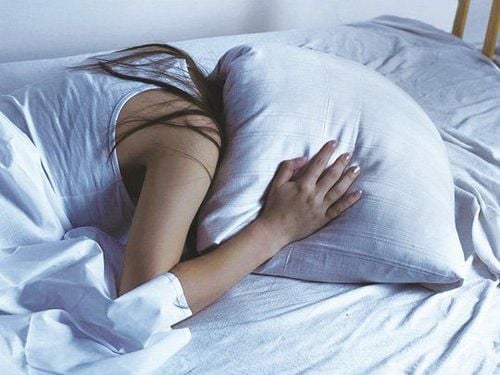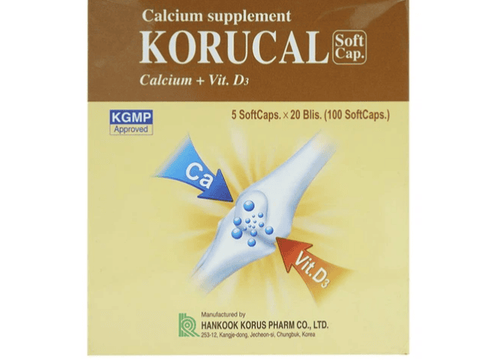This is an automatically translated article.
Discomfort with others, poor sleep, sudden happiness and hot flashes during menopause are common signs in women 45 - 55 years old. This natural milestone occurs when the ovaries stop producing estrogen and progesterone, officially starting if there is no period for 12 consecutive months.
1. Emotional Symptoms of Menopause
1.1. Hot flashes Hot flashes in menopausal women are the most talked about, but you can also experience other symptoms that are not well known. These include mood swings, irritability in menopausal women, emotional disturbances, poor mental clarity, and insomnia.
However, you can rest assured that the discomfort during this period will pass. Besides that, there are also a few ways to manage emotions, mood and menopausal hot flashes that you can apply.

Tình trạng bốc hỏa là triệu chứng thường gặp nhất ở phụ nữ thời kỳ mãn kinh
1.2. Depression Similar to premenstrual syndrome (PMS) and during pregnancy, hormonal changes can also affect menopausal women. Estrogen and progesterone affect serotonin and other neurotransmitters involved in mood. Major hormonal changes can make a menopausal woman's feelings worse.
Studies show that about 20% of women feel depressed during menopause. At this stage, you are more likely to experience depression if you have suffered from it before. Warning signs include:
Crying Dark thoughts Feeling worthless Losing hope Lack of energy Losing interest in previous hobbies Melancholy, sadness Difficulty making decisions.
1.3. Anxiety disorders Symptoms of depression and anxiety can overlap, triggering each other. Specifically, signs of an anxiety disorder include:
Difficulty relaxing Fear, panic attacks, or a feeling of danger all the time Sadness or irritability Loss of patience Persistent anxiety Restlessness.
2. How to Manage Menopause Emotions
2.1. Antidepressants If you have severe depression, especially starting at menopause, your doctor may prescribe a standard antidepressant. It usually takes 4-6 weeks for the medicine to start working. However, it should be noted that the drug can cause side effects, including irritability and insomnia. You need to work with your doctor to weigh the benefits and risks of taking the drug.

Sử dụng thuốc chống trầm cảm khi bị trầm cảm nặng vào thời kỳ bắt đầu mãn kinh có thể gây ra khó chịu ,mất ngủ do tác dụng phụ của thuốc
2.2. Hormone replacement therapy (HRT) Some studies show that taking estrogen can help ease mild depression in early menopause. It also enhances the effects of antidepressants. Doctors often recommend trying it if other treatments don't work. However, like all medications, hormone replacement therapy has risks and benefits, so talk to your doctor to make sure it's the right treatment.
2.3. Complementary and Integrative Treatments There are many relaxation techniques that you can learn online, in a classroom, or read or watch DVDs. You can find lessons on:
Deep, rhythmic, and relaxing breathing Image guidance Massage therapy, massage Practicing tai chi and yoga. A 2018 study found that yoga can help with the psychological and physical symptoms of menopause. For example, practicing yoga can reduce stress and ease hot flashes in menopausal women.

Hạn chế uống rượu bia,caffeine có thể giúp kiểm soát cảm xúc thời kỳ mãn kinh
2.4. Lifestyle changes Stick to a balanced diet with plenty of vegetables, fruits, and whole grains. Also limit alcohol, caffeine, and spicy foods, which can make symptoms worse. Take up a new or old activity or hobby that gives you positive energy when it's done. Connect, have fun with friends and the community. 2.5. Organize your emotions Face to face with yourself, think about why you feel the way you do, and what the root cause is. Cognitive behavioral therapy (CBT) can help you learn how to overcome bad thoughts and replace them with positive ones. Do not try to cover up your feelings, but express them and deal with them in a healthy way. Your doctor may advise or prescribe psychotherapy, along with antidepressants or other medications. 2.6. Face the reality In addition, the culture where you live also has some impact on your attitudes about menopause. For example, some places honor the wisdom of the elderly and always respect them, others praise youth and urge women to fight aging and hold on to youth. So you need to acknowledge the fact that:
Menopause is a natural part of life. Think about the positives of menopause. For example, even if you are no longer fertile, you will have freedom and comfort in the future. Enjoy the physical and mental effects of being in control of your emotional symptoms. Seek support from your doctor or health care system, the community, and other women.
3. Physical and mental symptoms affecting emotions

Mất ngủ khiến tâm trạng ngày càng trở nên u ám
3.1. Insomnia Lack of sleep can be both a cause and a result of hot flashes and irritability in menopausal women. Specifically, anxiety and depression lead to sleep problems, making your mood increasingly gloomy. Meanwhile, physical changes - such as a drop in estrogen - can trigger hot flashes, disrupt your sleep, or make you feel anxious or moody.
Taking low doses of estrogen and progesterone can help relieve chronic insomnia during this stage. Progesterone tablets also work to make you drowsy without the feeling of nausea or vomiting during the day. Ask your doctor about this HRT hormone replacement therapy to get more rest.
Besides, incorporating a healthy lifestyle and self-care techniques also helps reduce stress, as well as manage symptoms that make it difficult to sleep. Specifically:
Review the type of drink you consume. Caffeine can keep you awake all night, while alcohol disrupts sleep. Exercise is great, but only make time to be active during the day. Too much activity before bed can make your body overstimulated, making it difficult to fall asleep. Study techniques for linking mind and body, such as mindfulness meditation. This exercise helps you focus on the present moment. While it won't affect menopausal hot flashes, it will help reduce anxiety and improve sleep.
3.2. Memory and concentration problems

Vào thời kỳ mãn kinh bạn muốn giữ cho đầu óc luôn nhạy bén bạn cần hạn chế những hoạt động không khiến bạn phải suy nghĩ-mạng xã hội
Some ways to keep your mind sharp are:
Learn and play mind-challenging games, or solve word puzzles to help your brain exercise along with your body. Try to limit activities that don't make you think, such as watching TV, social media. Ask your doctor for support and techniques to hone your memory. 3.3. Body appearance Middle-aged women are easy to gain weight due to age and lifestyle changes. Moreover, menopause causes the body to increase fat storage and decrease metabolism.
Although this is normal, it is easy for women to feel uncomfortable when they see their body change. Try these healthy tips:
Ignore your flaws and focus instead on the things you like about yourself. When thoughts of self-criticism pop into your head, come up with a few more self-praise. Make time for the positive hobbies you're pursuing. Expand your social or spiritual life to give up introversion, self-doubt, and self-criticism. Exercise can help you improve your physique, look, and health, even without losing weight. Currently, Vinmec International General Hospital is providing pre-menopausal health examination and counseling package. When registering for an examination package, customers will be examined and consulted with a specialist in Gynecology; Perform tests to assess hormone status. When registering for the premenopausal health care package and consultation, customers will receive:
Gynecological specialist examination Gynecological examination, breast examination Transabdominal ultrasound of uterus and ovaries Take specimens as a smear Cervical-vaginal cytology Mammogram (2 sides) Osteoporosis Measure other tests to detect pre-menopausal conditions, if any.
Please dial HOTLINE for more information or register for an appointment HERE. Download MyVinmec app to make appointments faster and to manage your bookings easily.
Reference source: webmd.com













